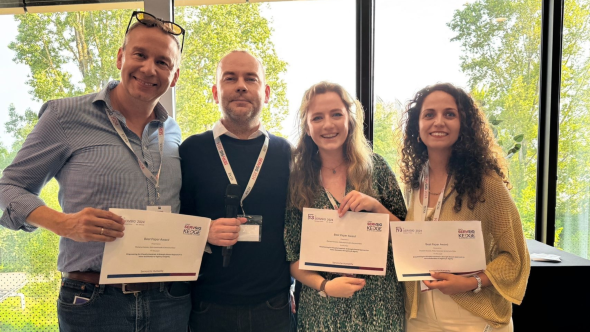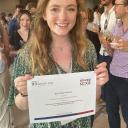UNamur researcher wins Best Research Paper Award at American Marketing Association conference - SERVSIG
Floriane Goosse, a PhD student at the University of Namur, within the NaDI-CeRCLe research center, has received the prestigious "Best Research Paper Award" for her thesis paper conducted in collaboration with Wafa Hammedi, professor in the Department of Management at UNamur, and Dominik Mahr, from Maastricht University.

